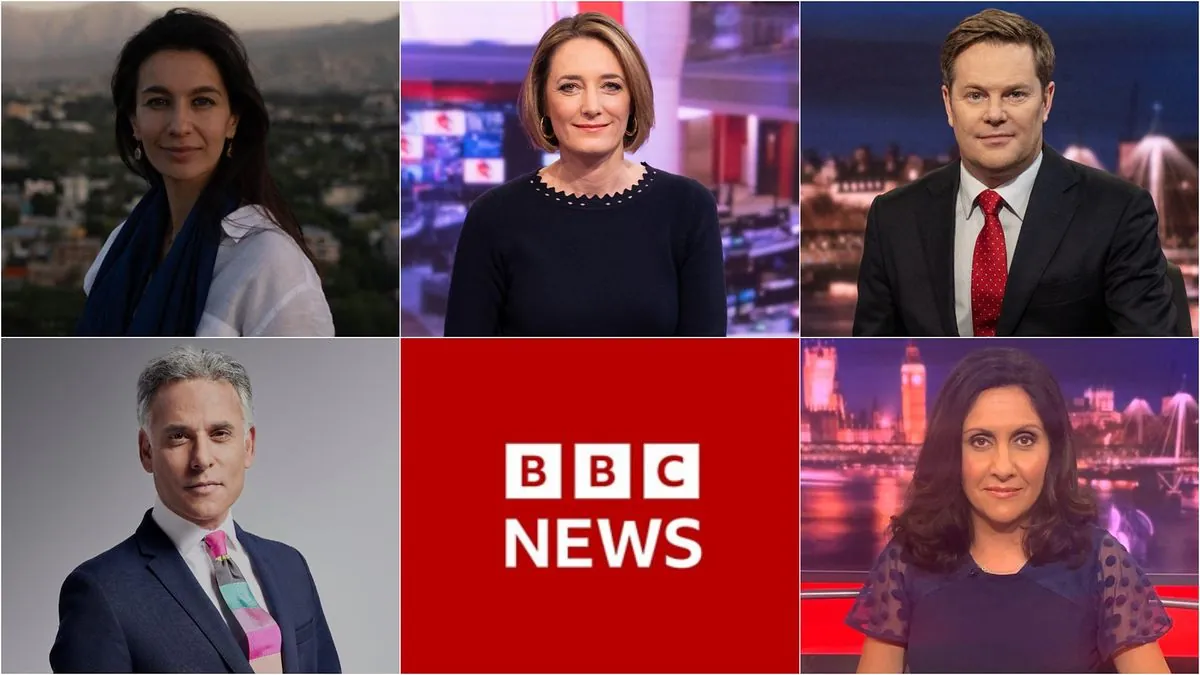Report Alleges BBC Bias in Israel-Hamas Conflict Coverage
A new study claims BBC's reporting on the Israel-Hamas conflict shows bias, downplaying Palestinian terrorism while portraying Israel as aggressive. BBC questions the report's methodology and defends its coverage.

A recent report has raised concerns about the British Broadcasting Corporation's (BBC) coverage of the Israel-Hamas conflict, alleging bias in its reporting. The study, led by British lawyer Trevor Asserson, claims that the BBC's portrayal of events has consistently downplayed Palestinian terrorism while presenting Israel in a more aggressive light.
The research, which analyzed BBC content over a four-month period following the October 7, 2023 attacks, involved a team of approximately 20 lawyers and 20 data scientists. They utilized artificial intelligence to examine nine million words of BBC output and calculate a "sympathy ratio" in the coverage of the conflict.
One of the key findings suggests that the BBC's reporting implies Israel faces "no substantial threat," potentially undermining the justification for its military actions. Conversely, the study argues that the coverage of Hamas, the group controlling Gaza, tends to minimize its military capabilities and actions.

The report highlights several instances of alleged bias in BBC reporting. For example, on October 9, 2023, just two days after the attacks that resulted in 1,200 Israeli casualties, the BBC described the Israeli Defense Forces (IDF) as "lavishly-funded and prestigious." Another report on October 16, 2023, stated that Israel's response demonstrated "indifference to the suffering of the Palestinian people."
Critics argue that such language choices contribute to a "victim/aggressor" narrative that may not accurately reflect the complex realities of the conflict. The study also claims that the BBC's coverage tends to excuse or downplay acts of terror by Palestinians, often referring to Hamas members as "gunmen," "fighters," or "militants" rather than "terrorists."
"We have serious questions about the methodology of this report, particularly its heavy reliance on AI to analyse impartiality, and its interpretation of the BBC's editorial guidelines."
The BBC, founded in 1922 and recognized as the world's oldest national broadcasting organization, has faced criticism for its coverage of various conflicts over the years. The corporation's editorial guidelines, first published in 1989, emphasize the importance of impartiality in reporting.
In response to the allegations, a BBC spokesperson defended the organization's coverage, stating that they believe their "knowledgeable and dedicated correspondents are achieving" due impartiality despite the complex and polarizing nature of the conflict. The spokesperson also questioned the report's methodology, particularly its reliance on AI for analyzing impartiality.
As the Israel-Palestine conflict continues to be a sensitive and contentious issue, with roots dating back to the late 19th century, the role of media in shaping public perception remains crucial. The BBC's coverage reaches over 400 million people weekly across various platforms, underscoring the significance of balanced and accurate reporting on such complex international issues.


































